A history of foreign starts at the Tour de France
As Copenhagen marks the 24th foreign Grand Départ, we take a look back at memorable starts through the years
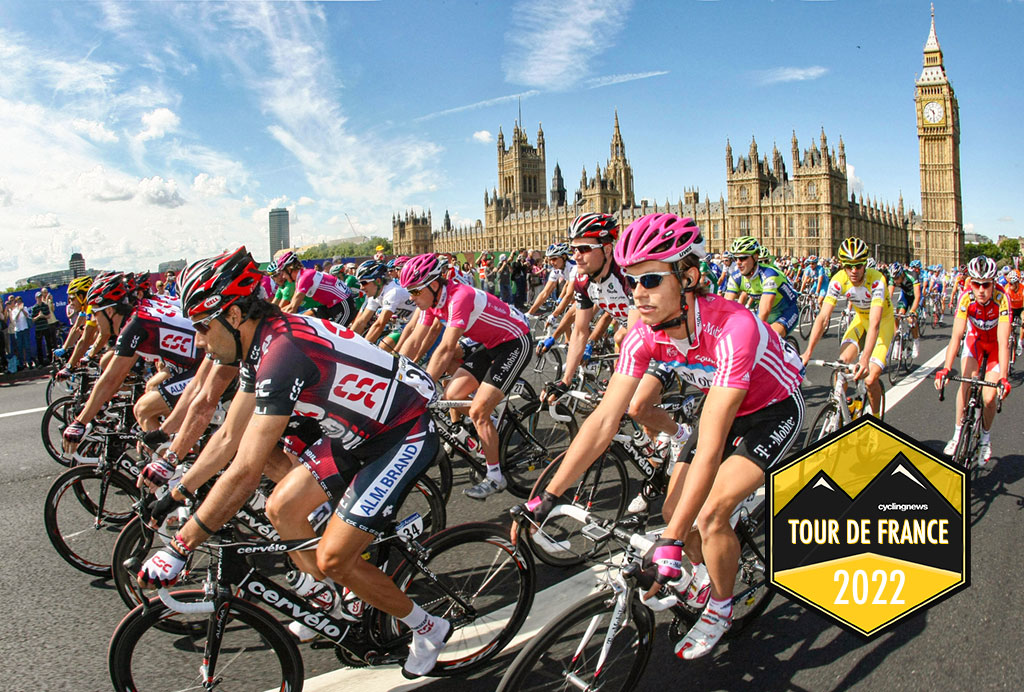
Friday's Tour de France Grand Départ in the Danish capital of Copenhagen will mark the 24th time the race has kicked off with a start outside of its home country, a tradition dating back all the way to 1954.
The 2022 Tour start will be the most far-flung yet, even if it doesn't quite match up to the Giro d'Italia's starts in Greece and Israel over the years. It's the first time the race – or any Grand Tour – has started in Denmark.
Over the past 68 years, the Tour has begun in almost every major western Europe country, barring Italy (which could host the 2024 Grand Départ). The likes of Switzerland, Ireland, Germany, and Spain have all hosted Tour starts in that time.
This weekend, the peloton will take in three stages in Denmark, with a time trial and two sprints on the menu before they fly back to the north of France on Monday. Ahead of the 2022 start and all the action that lies ahead, we've taken a look back at some of the most memorable Grand Départs of years gone by.
1954: Amsterdam, Netherlands
The 1954 Tour would eventually be won by Louison Bobet, the second victory of the first Tour three-peat. The Frenchman was already on the podium on stage 2, winning as the peloton raced from the Flemish city of Beveren to Lille in northern France.
A day earlier, the race had kicked off in Amsterdam, where Dutch rider Wout Wagtmans gave the home crowds something to celebrate as he took the second of four career stage victories at the race just over the Belgian border in Brasschaat.
Massive crowds lined the roads for the opener, which saw Wagtmans attack to the win late on, just about holding off the peloton. He would hold yellow for three days before ceding it to Bobet, and later enjoyed another four days in the lead as the race snaked down to the Pyrenees. (DO)
The latest race content, interviews, features, reviews and expert buying guides, direct to your inbox!
1973: Scheveningen, Netherlands
Joop Zoetemelk had already stood on the final Tour de France podium on two occasions before he had the opportunity to start the 1973 Tour – his fourth – at home, just minutes away from his hometown of The Hague.
He hadn't won a stage of the race by this point, having already accrued two runner-up spots in addition to his two overall second places, but pulled out all the stops on home ground for the short 7.1km prologue.
Under 10 minutes after setting off, Zoetemelk would have his first career Tour stage win, getting the beating of 'the eternal second' Raymond Poulidor by just one second.
He'd end the race fourth overall, and would have to wait seven more years to seal the yellow jersey, while the 1973 race spent three more (half) stages working its way across the Netherlands and Belgium, including a mini 12.4km time trial. (DO)
1987: West Berlin, Germany
By the late 1980s, the Tour was regularly visiting neighbouring countries for Grand Départs, with three in the Netherlands, two apiece in Belgium, and West Germany, and one in Switzerland.
1987 brought a third start in West Germany, and what would be the final visit to the country before reunification. It would be the most far-flung Tour start at the time, and there would be a full five days of racing in Germany before the race even hit the border and returned to France.
A 6km prologue on the opening day brought glory for Dutchman Jelle Nijdam, who utilised two disc wheels to take the win by three seconds as eventual race winner Stephen Roche rounded out the top three.
Nijdam's countryman Nico Verhoeven won stage 1, sprinting home from a small breakaway group, while Roche's Carrera Jeans squad beat Saronni's Del Tongo in the stage 2 time trial.
Portuguese rider Acácio Da Silva and solo breakaway man Herman Frison won stage 3 and 4 into Stuttgart and Pforzheim before the race headed to Strasbourg on stage 5, concluding what would be the last Grand Départ in Germany for three decades. (DO)
1992: San Sebastián, Spain
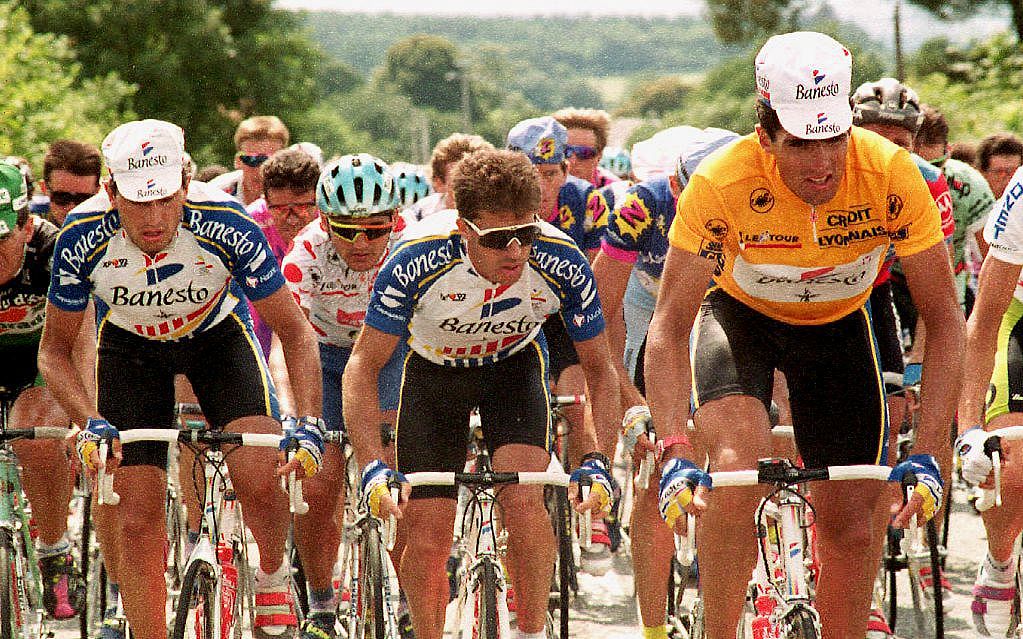
While the Vuelta a España was at this point in the midst of what would be a 33-year avoidance of the Basque Country (the race returned in 2011), the Tour chose the region to host its first Spanish Grand Départ three decades ago.
The prologue was overshadowed by a bombing in an underground car park in Fuenterrabia the night before, a reminder of the tensions in the region that saw the Vuelta stay away.
The race itself, however, went off without any such problems, and was instead a celebration of reigning champion Miguel Indurain, who hailed from the town of Villava in the eastern Basque Country.
The Banesto leader duly pleased the home crowds with a victory in the 8km prologue, beating ONCE's Alex Zülle by two seconds. Indurain would cede the lead to the Swiss rider on the first road stage a day later, though he'd be back in yellow in the Alps en route to a dominant four-minute overall victory. (DO)
1998: Dublin, Ireland
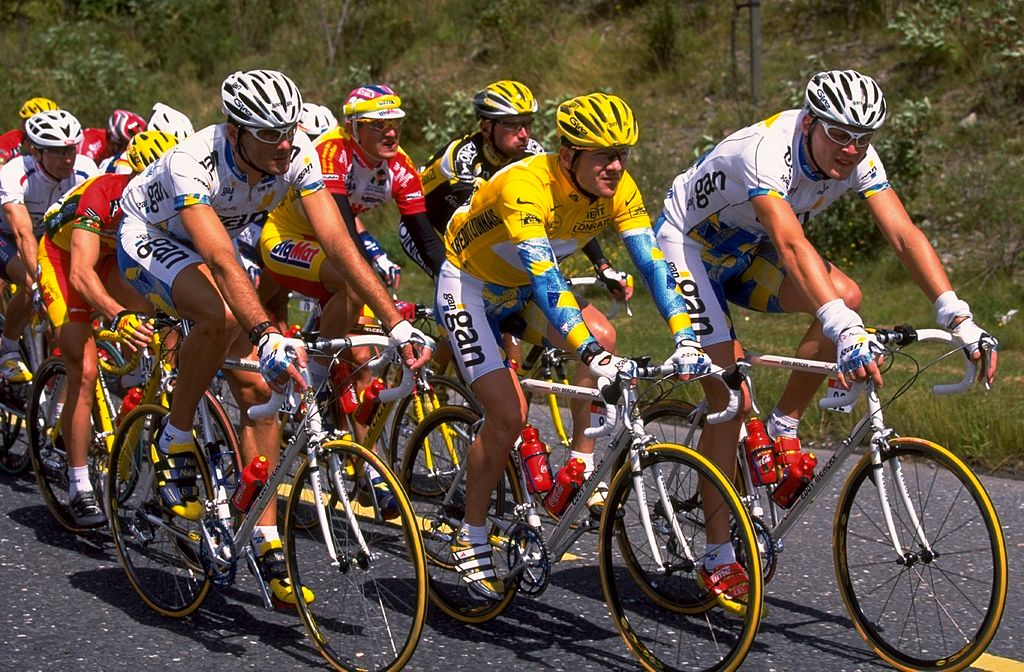
The 1998 Tour start in Ireland was not completely overshadowed by the Festina scandal that almost caused the entire race to grind to a halt, but the storm clouds were looming fast.
Festina soigneur Willy Voet had been arrested earlier that week on the French border with a trunkload of doping products in his car, the team had already gone into full denial mode over his whereabouts, and riders were already pouring their doping products down the wash-basins and toilets of their hotels.
Given the meltdown that then unfolded in that Tour, with the glorious gift of hindsight it almost seemed irrelevant that Chris Boardman claimed his third Tour prologue win in five years on a rain=soaked Dublin Friday evening. Or indeed that Boardman, while in the leader’s jersey, then crashed out en route to Cork and the ferries assembled to take the race back to France that evening.
But at the time, the massive crowds that lined the route in Dublin despite the weather, and again on the stages taking the race inland that followed, seemed to hold out hope that the Tour start in Ireland would be remembered as a success. But that was all quickly eclipsed by what unfolded in France. (AF)
2007: London, United Kingdom
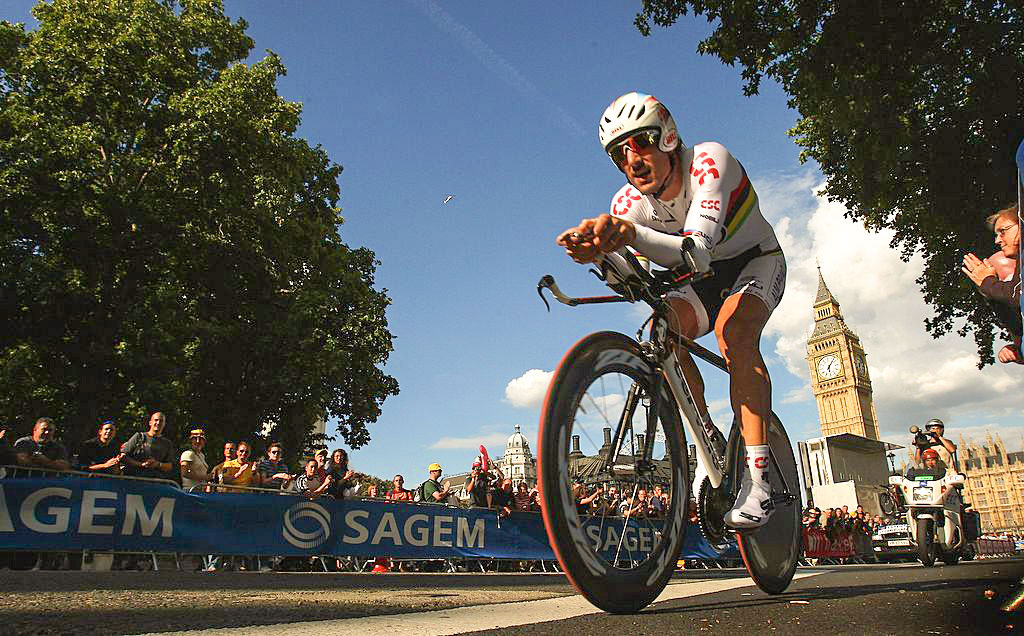
Pre-empting the British cycling explosion that saw the founding of Team Sky, the 2012 Olympic Games, and the rise to superstardom of Mark Cavendish, Bradley Wiggins, Geraint Thomas, and Chris Froome, the Tour headed to Britain for the first time 15 years ago.
The home start came a year too early for Cavendish, who broke out with four stages in 2008, though time triallists Wiggins and David Millar – as well as Liquigas domestique Charly Wegelius and Barloworld neo-pro Thomas were also holding up the home end.
Wiggins and Millar were both among the favourites for the opening prologue around the streets of central London, though it was Swiss star Fabian Cancellara who dominated the day (as he had in 2004 and as he would in 2009, 2010, and 2012) to win by 13 seconds as Wiggins was the top Brit in fourth.
The next day Millar gave home crowds something to cheer, taking the polka dot jersey from the break on the flat stage to Canterbury as Robbie McEwen sprinted to victory. Three weeks later, Alberto Contador claimed his first Tour win after a controversial race which saw Iban Mayo, double stage winner Alexandre Vinokourov, and yellow jersey Michael Rasmussen all leave the race under doping clouds. (DO)
2010: Rotterdam, Netherlands
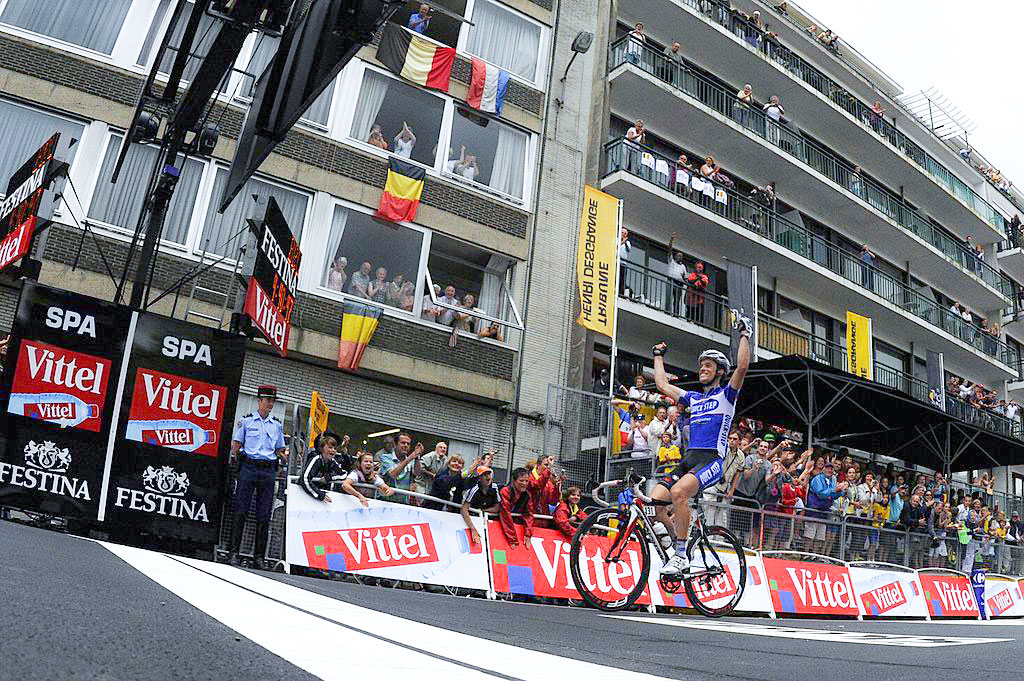
Three days across the Low Countries kicked off the 2010 Tour as the Netherlands hosted the Grand Départ for the fifth time.
Once again it was Fabian Cancellara's time to shine as the Swiss rider, hot off a superb spring with wins at E3 Harelbeke, the Tour of Flanders, and Paris-Roubaix, beat Tony Martin by 10 seconds over the 9km course in Rotterdam.
Alessandro Petacchi shot to sprint glory on stage 2 in Brussels, while the hilly third stage to Spa was perhaps the most memorable of the lot. There, Sylvain Chavanel soloed to the yellow jersey as the peloton staged a go-slow after the carnage and mass crashes on the wet, slippery roads.
The Frenchman would hand yellow back to Cancellara the next day as the race hit France – and the cobbles of Paris-Roubaix – but would be back in the lead for another day with another breakaway win on stage 7. In Paris, it was Alberto Contador (later Andy Schleck) who took the overall glory. (DO)
2014: Leeds, United Kingdom
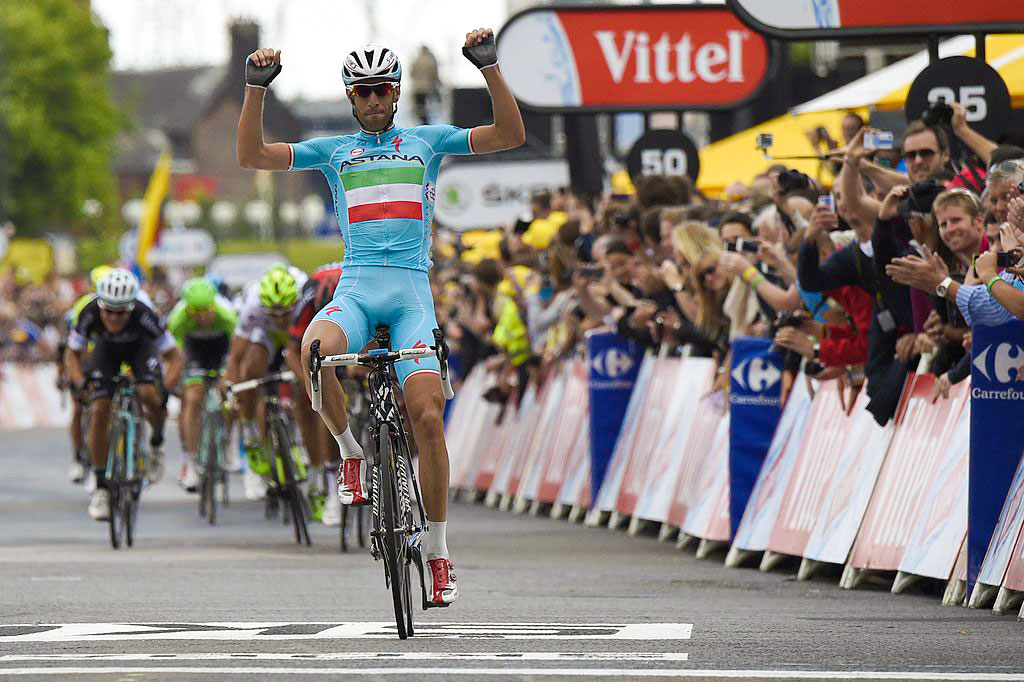
Seven years on from the London start, the Tour revisited the UK once more, with two days in Yorkshire followed up by one into London before the race travelled back across the Channel.
It was the year following the triumphs of Wiggins and Froome, and so the roads of Yorkshire were packed with fans there to cheer on Team Sky as well as Cavendish, who by that point had 26 Tour stage wins to his name.
As was the case in 2007, though, there would be little home glory for the Brits. In Harrogate and London, Marcel Kittel, the dominant sprinter of the previous year, would take the wins, while eventual winner Vincenzo Nibali nipped away to stage 2 victory in the hills of Sheffield.
Cavendish, meanwhile, left the race after stage 1 after crashing hard in Harrogate, while defending champion Froome made it to France and the cobbled stage – but not the cobbles – 5 before crashing out.
The Grand Départ had a lasting effect on cycling in the region, spawning the Tour de Yorkshire men's and women's race before COVID-19 and financial problems saw both events cancelled from 2020 through this year. (DO)
2019: Brussels, Belgium
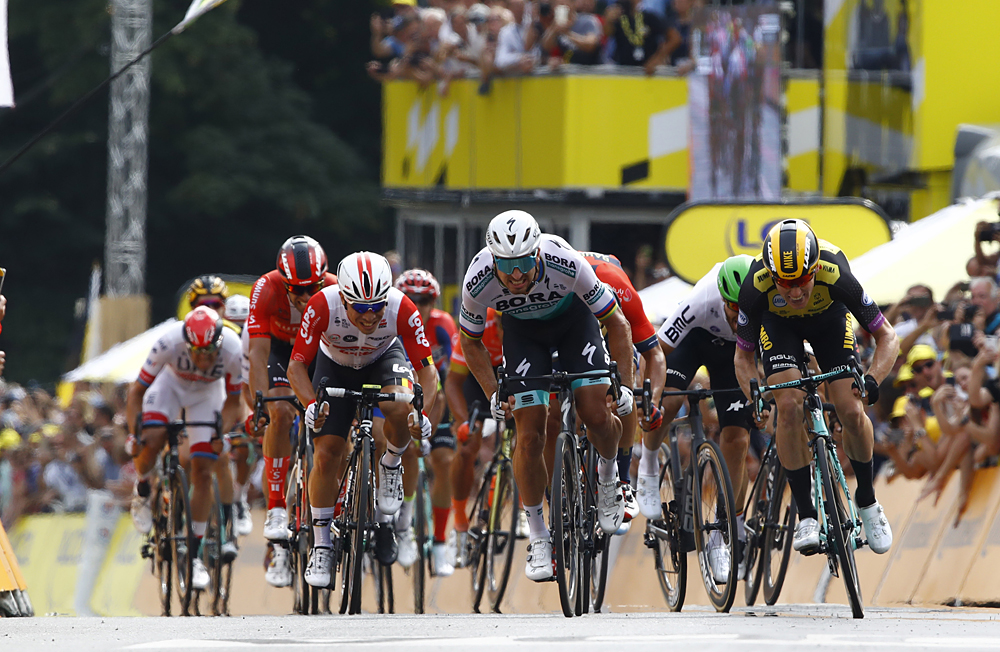
The last Tour to start outside of France came three years ago with the fifth Grand Départ from Belgium – the first time the race had kicked off in the capital, Brussels, since 1958.
The city hosted both the opener and the second stage of the race, before a third stage from the Walloon town of Binche took the peloton on a hilly stage into France.
Jumbo-Visma dominated the first two days of the race as Wout van Aert (who would later win stage 10 in Albi) making his Tour debut. The opening stage, which featured the Muur van Geraardsbergen early on, would be prime Van Aert territory today, but then it was Dylan Groenewegen set to sprint for the Dutch squad.
He was taken down by a mass crash late on, though, and instead it was Mike Teunissen who took a surprise victory, holding off Peter Sagan and Caleb Ewan to take yellow. The squad would go on to dominate the stage 2 TTT, too, putting a full 20 seconds into second-placed Ineos over the 27.6km course. (DO)
Foreign starts at the Tour de France
| Year | Location |
|---|---|
| 1954 | Amsterdam, Netherlands |
| 1958 | Brussels, Belgium |
| 1965 | Cologne, West Germany |
| 1973 | Scheveningen, Netherlands |
| 1975 | Charleroi, Belgium |
| 1978 | Leiden, Netherlands |
| 1980 | Frankfurt, West Germany |
| 1982 | Basel, Switzerland |
| 1987 | West Berlin, West Germany |
| 1989 | Luxembourg City, Luxembourg |
| 1992 | San Sebastián, Spain |
| 1996 | 's-Hertogenbosch, Netherlands |
| 1998 | Dublin, Ireland |
| 2002 | Luxembourg City, Luxembourg |
| 2004 | Liège, Belgium |
| 2007 | London, United Kingdom |
| 2009 | Monaco, Monaco |
| 2010 | Rotterdam, Netherlands |
| 2012 | Liège, Belgium |
| 2014 | Leeds, United Kingdom |
| 2015 | Utrecht, Netherlands |
| 2017 | Düsseldorf, Germany |
| 2019 | Brussels, Belgium |
| 2022 | Copenhagen, Denmark |
| 2023 | Bilbao, Spain |

Dani Ostanek is Senior News Writer at Cyclingnews, having joined in 2017 as a freelance contributor and later being hired full-time. Before joining the team, she had written for numerous major publications in the cycling world, including CyclingWeekly and Rouleur. She writes and edits at Cyclingnews as well as running newsletter, social media, and how to watch campaigns.